Home >Technology peripherals >AI >Snapdragon 8 Gen 3 raises the banner for generative AI, performance improves dramatically, and game frame rate soars to 240
Snapdragon 8 Gen 3 raises the banner for generative AI, performance improves dramatically, and game frame rate soars to 240
- WBOYWBOYWBOYWBOYWBOYWBOYWBOYWBOYWBOYWBOYWBOYWBOYWBforward
- 2023-10-25 20:25:011316browse
At 3 o'clock this morning, Qualcomm released the latest generation of Snapdragon 8 Gen 3 processor, and major mobile phone manufacturers are also actively preparing to release their new generation of flagship mobile phones. The Xiaomi Mi 14 series is expected to be released first tomorrow and is expected to be the first choice!

What are the changes in Snapdragon 8 Gen 3?
Let’s start with the CPU and GPU that everyone is most concerned about. The three-cluster architecture of the newly released Snapdragon 8 Gen 3 CPU has changed from the 1 “2 2” 3 of the previous generation to 1 “3 2” 2. No. It is difficult to see that this time Qualcomm has once again increased the "medicine effect" of the CPU large core (performance core).
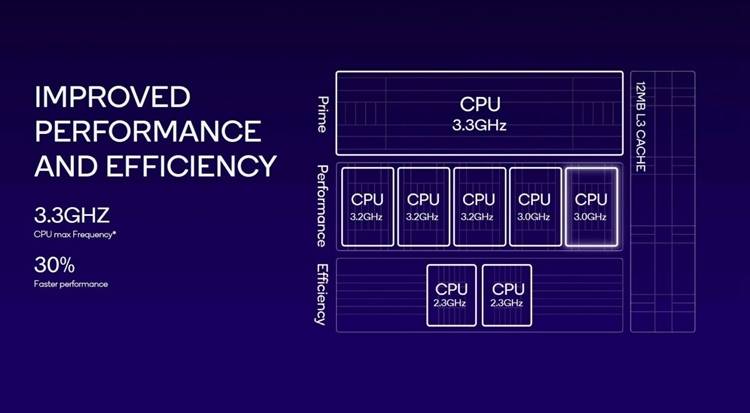
In terms of CPU frequency, the ultra-large core of the CPU has been increased from 3.19GHz of Snapdragon 8 Gen 2 to 3.3GHz, and the frequency has been increased by 110MHz. The large core has been increased from the previous generation's maximum 2.8GHz to 3.2GHz, and the frequency has been increased by 400MHz. The small core is increased from 2.0GHz to 2.3GHz, and the frequency is increased by 300MHz.
From the perspective of daily use and CPU scheduling in games, large cores are usually the main core power, while ultra-large cores may only play a role in a few scenarios. This time, Qualcomm once again focuses on improving the large core (performance core) and pays more attention to daily practicality. According to the official statement, the CPU performance has been improved by 30% and the energy efficiency has been improved by 20%
In terms of GPU performance, using the new generation Adreno GPU, officials claim that the GPU performance of Snapdragon 8 Gen 3 has been improved by 25%, and the energy efficiency has also been improved by 25%.
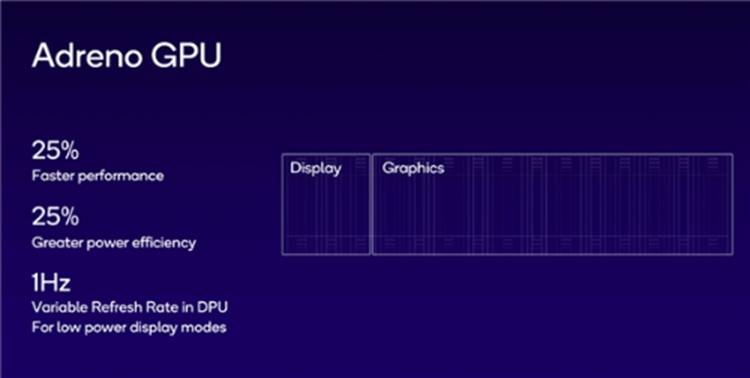
In order to improve the gaming experience, Snapdragon 8 Gen 3 has added ray tracing to the previous generation, and also introduced something called "AFMF" (image motion engine) to make ray tracing more practical
What does this AFMF do? In fact, it's similar to Nvidia's DLSS feature, which can increase or even double the frame rate of games, even reaching 240FPS. Theoretically, games that require higher mobile phone performance, such as "Genshin Impact", "Starry Sky", and "Ni Shuihan", can experience a smoother frame rate and reduce the pressure of ray tracing on mobile phone performance
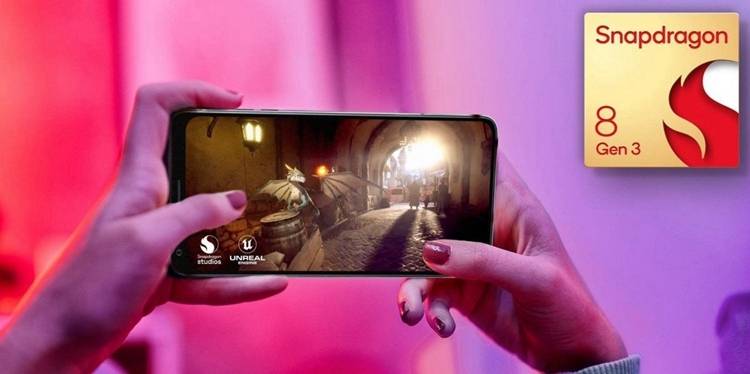
However, compared to the upgrades of CPU and GPU, the AI performance of Snapdragon 8 Gen 3 caught my attention this time, and this is also a major focus of the upgrade of Snapdragon 8 Gen 3. Qualcomm’s focus on this generation of processors The AI part also holds high the banner.
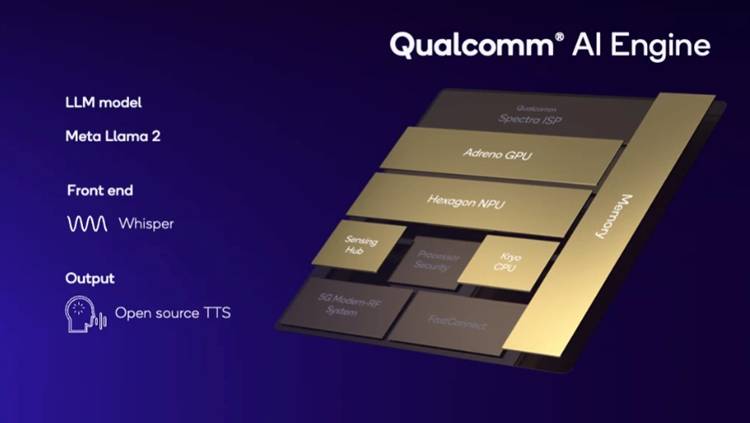
Qualcomm Anmon said: "We are entering the era of artificial intelligence, and terminal-side generative artificial intelligence is critical to creating powerful, fast, personalized, efficient, secure and highly optimized experiences."
Chris Patrick, senior vice president and general manager of mobile phone business at Qualcomm Technologies, said: "The third-generation Snapdragon 8 integrates high-performance artificial intelligence technology into the entire platform system to bring consumers excellent performance and extraordinary experience. The The platform will usher in a new era of generative artificial intelligence, empowering users to create unique content, improve productivity, and enable other breakthrough application scenarios."
With the rapid development of AIGC and its help to people becoming more and more obvious, the performance of artificial intelligence will inevitably become the core competitive point of the next generation of mobile phone processors
Now Huawei, Honor, Xiaomi, and OPPO have stated or hinted that they will add large AI models to their mobile phones next year, and their voice assistants will all receive a "smarter" upgrade.
The foundation of all this requires huge AI performance support.
As the Snapdragon processor is the first choice for many flagship mobile phones, it is particularly important to deploy the AI performance of Snapdragon 8 Gen 3 in advance.
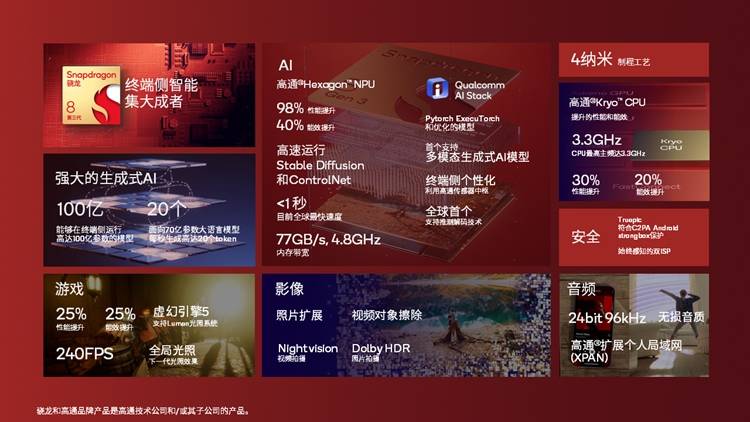
Snapdragon 8 Gen 3 uses Qualcomm Hexagon NPU. According to official claims, the performance has been improved by 98% and the energy efficiency has been improved by 40%. Additionally, it supports over 20 generative AI models, including Meta Llama 2. This means that the hardware is ready, just waiting for the mobile phone manufacturers to apply it!
Next year will be the year when mobile phone generative AI explodes! This is predictable
The above is the detailed content of Snapdragon 8 Gen 3 raises the banner for generative AI, performance improves dramatically, and game frame rate soars to 240. For more information, please follow other related articles on the PHP Chinese website!
Related articles
See more- Technology trends to watch in 2023
- How Artificial Intelligence is Bringing New Everyday Work to Data Center Teams
- Can artificial intelligence or automation solve the problem of low energy efficiency in buildings?
- OpenAI co-founder interviewed by Huang Renxun: GPT-4's reasoning capabilities have not yet reached expectations
- Microsoft's Bing surpasses Google in search traffic thanks to OpenAI technology

